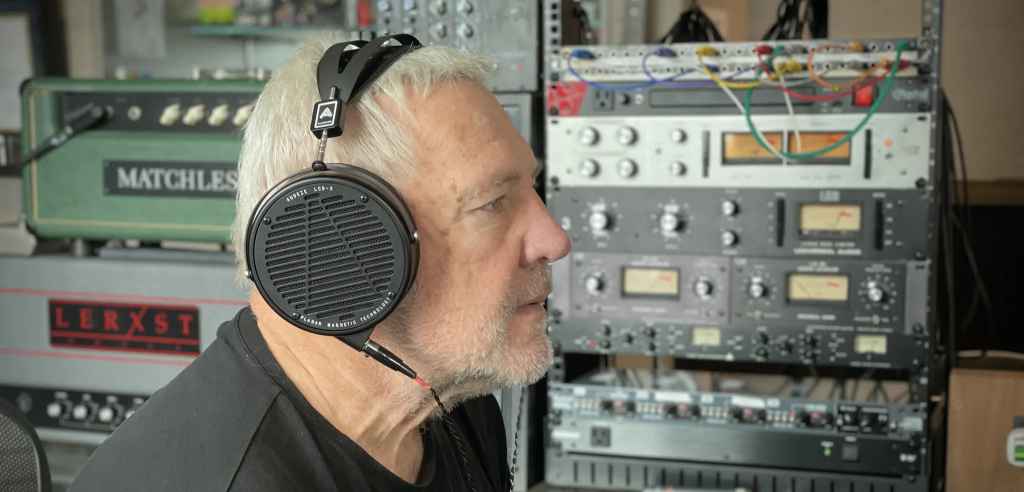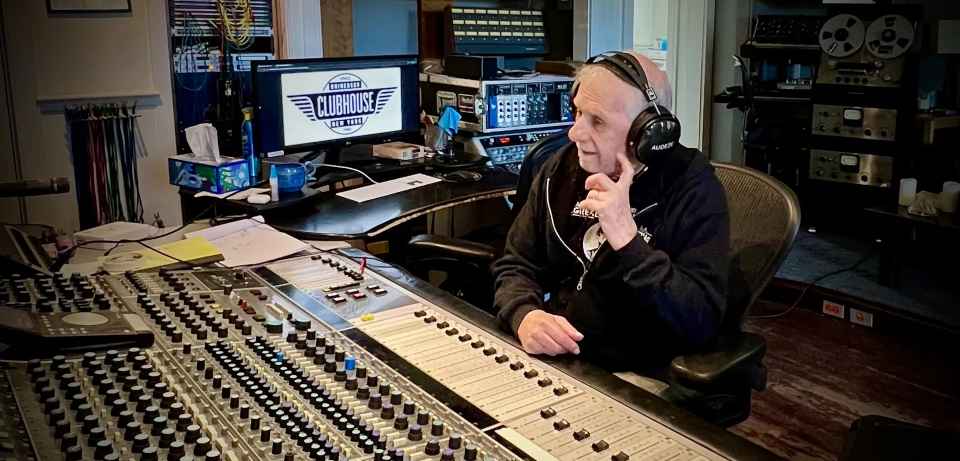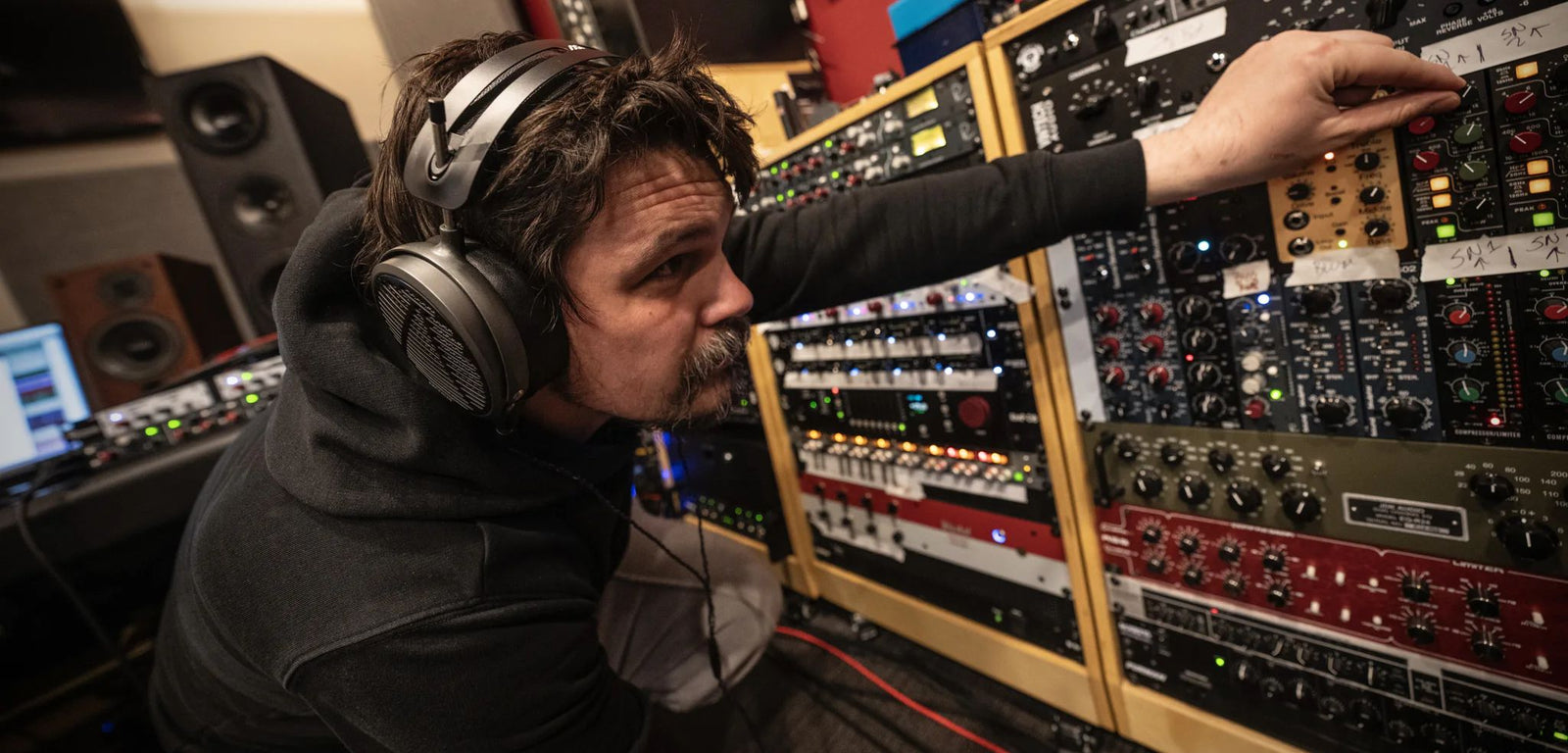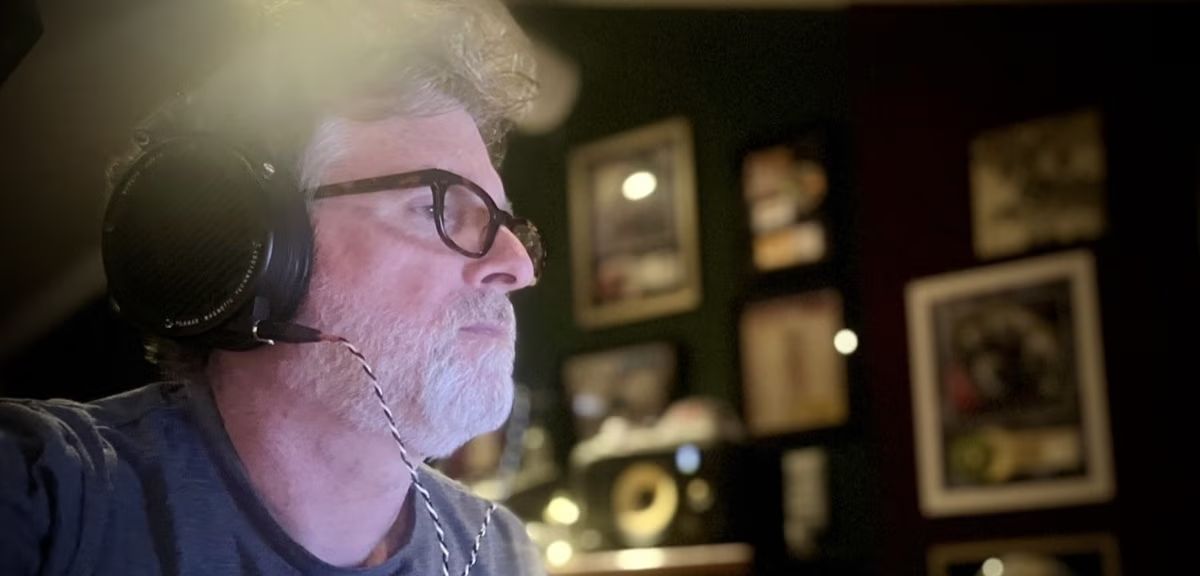
Alex Lifeson is a Canadian musician, best known as the guitarist of the Canadian rock band Rush.

Elliot Scheiner is an engineer and producer. He started working for Phil Ramone at his A&R studios which at that time was considered one of the best studios in the country.

James 'Jimmy T' Meslin is a Grammy winning recording, mix, and live sound engineer based out of Long Island, NY. He's probably best known for his work with prog-metal giants Dream Theater and their affiliated projects.

Dave Way has been mixing longer than he hasn’t. Platinum albums, No. 1 singles, 4 Grammys, 19 Billion streams with names like Michael Jackson, Fiona Apple, P!nk, Xtina Aguilera, Ringo Starr, Iron And Wine, Sheryl Crow, Marshmello, Fall Out Boy, Kesha, Macy Gray, TLC, Victoria Monet, Sons Of Anarchy, Tracy Chapman, Ben Folds, John Doe, MC5, Spice Girls, Weird Al, Paul McCartney, Bobby Brown, Mick Jagger and many, many more.
October 04, 2021

Hmmm…. I'm almost never satisfied after the fact, always have that “could have done that better now” feeling, but then again, sometimes I go back to something from years ago and say “damn, that's pretty good”, so…
A few moments that stand out maybe:
I saved a track for Janet’s record Damita Jo. The “band” and Janet were all just jamming spontaneously with some MPCs, and keys and a guitar, and I kinda snuck in. There was no rig set up in that room to record, but I found some weird Tascam digital console that was plugged in, and figured it out and plugged some of the gear in. At some point, they all had a magic moment and kinda “found” the song at this one particular loop and were super-excited, but then resigned to the fact that they couldn't remember it after the fact. They just couldn't get back to exactly the same feel. But then I said “you mean this part right here?” And I played back the part where they all got excited, and they were like “YES! You recorded that?!” And that became a really cool song on there. The whole song is that one section looped. So, kids, ALWAYS RECORD!
Not big on “pride” really, but another time when I was still pretty young, I recorded drums for Jim Keltner (Rolling Stones, John Lennon, Robbie Robertson), who is an absolute legend, and super-cool guy. He comes in to hear a playback, and kinda hesitates and says, “You know G, I hate to say it…….. but this sounds really great”. So he kind of gave me a little head-fake there. But him approving was a big deal.
And of course, hangin' out and helping mix two Foo Fighters songs. Dave Grohl is my main drumming influence since I was a teenager, and it's always a relief to find out your “heroes” are actually great dudes or dudettes.
A little bit of everything really. Definitely recording and mixing, and if it's not me doing it personally, I oversee the quality. Mixing these days oftentimes entails some extra production and programming. If I hear something in a track, I’ll add it…. additional drums, background vocals, synth part, a guitar lick. Whatever I think makes it better, but only if I “hear” it… never good to force something just because. Sometimes it doesn’t work, but it usually does. It helps greatly that our whole team is on the same page, and have discussed the direction for a particular track or project.
I started out like a lot of kids in the mid-90s, recording bands I was in with my friends on a Tascam 4-track cassette machine, and just experimenting and having fun with it. I was really into 60’s music as a kid, which might be a bit odd, but it's still the best decade overall for music. A lot of Oldies, then I got really into the Beatles, and of course the grunge scene and a lot of Southern California punk stuff like Lagwagon, NoFX, etc. I used to hate modern pop and thought it was too sell-outy and fake, but now I've learned to really enjoy and appreciate a properly-done pop song, especially those with actual, meaningful lyrics. Whatever the style, as long as it's great. There are great songs in every genre.
Really, just being fortunate to work with some of the best musicians and producers. Learning how they get the end results, learning how many ways there are to get there, and how to read a room or different kinds of people, especially creative people, as they can often be very eccentric. And of course, good ol’ trial and error. Mistakes are crucial to improving, embrace them, just don’t make the same ones twice.
People can occasionally be disrespectful, and it's almost always just the way they are. I am always trying to remind myself to not take it personally and to not be too proud… kind of step outside myself and laugh a little bit. Energy can shift in the studio very quickly, so always try to keep things balanced and light whenever possible. People will follow that energy and the session and music will benefit. Also, first impressions are very important to setting a tone that will last an entire project or song. If you’re a very serious person, find another occupation.
I'm kind of always shifting based on the style or project, but some tried and trues would be an 1176, the SM7 (especially the original model), Coles 4038s, STA-level comps, really into API EQs and Preamps lately, and quality monitors that vibe with you. Everyone has different ears for monitors. Lately I am really digging ATCs, Eve, and these little discontinued Focals. And the Audeze allow me to mix on 'phones for the first time really. You still have to work with the monitors, but it's no longer an unpleasant shock when I take the headphones off after an hour to see how it translates. It's like “zooming in” on your mix. They’re great, and fun to work on.
Learn as many skills as you can. Don’t limit yourself to just one role.
I have been using them a lot more recently. Especially with so many more remote sessions now, top-notch headphones are more critical. During a mix, I pop the headphones on near the end to fine tune and listen for any things I might have missed. Usually that's some really high or really low stuff, and clicks and pops. And also, with really good headphones, it's just fun, so it might spark a few last-minute ideas as well.
These Audeze LCD-Xs have allowed me to travel to different rooms and trust what I am hearing. Before, we had some decent headphones, but I could never mix critically on them, it was more for isolation purposes. For Blade Runner: Black Lotus, we would move between our main studio to our Dolby Atmos room, and a few times to a few other rooms. Your typical headphones are usually kinda closed-in feeling and have weird boosts or hype in different frequency ranges, so you can’t really trust what the sound is actually doing. Or if you do find a pair that are flat and accurate, they are usually kind of boring. But with the LCD-Xs, I can trust them and they are inspiring and fun to work on. I often forget I even have them on!
I love my LCD-Xs, but... there's room for a new love in my life with the LCD-5s.